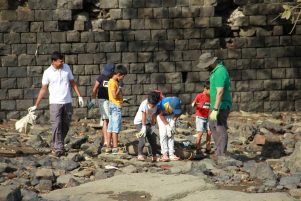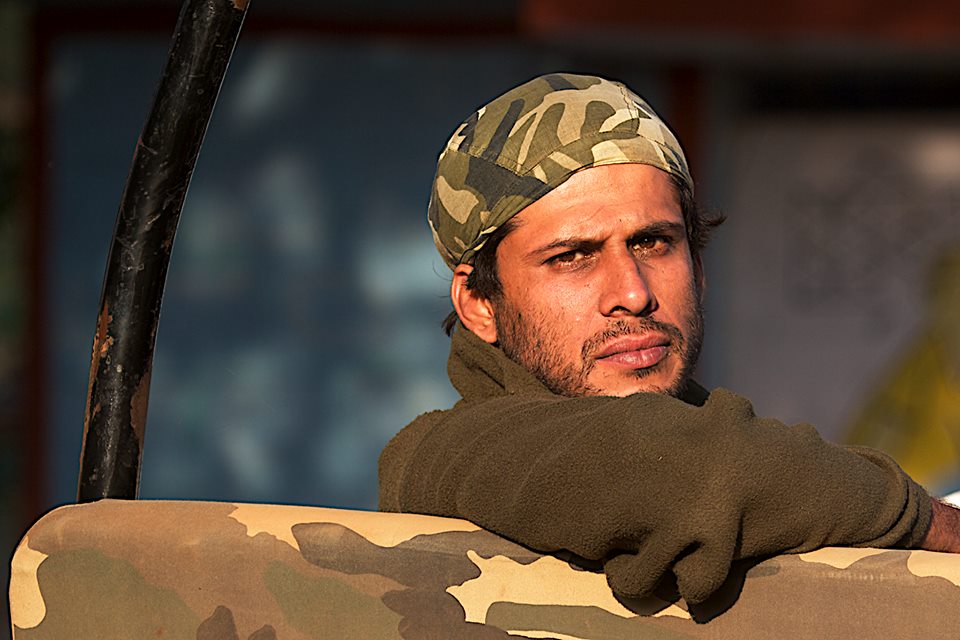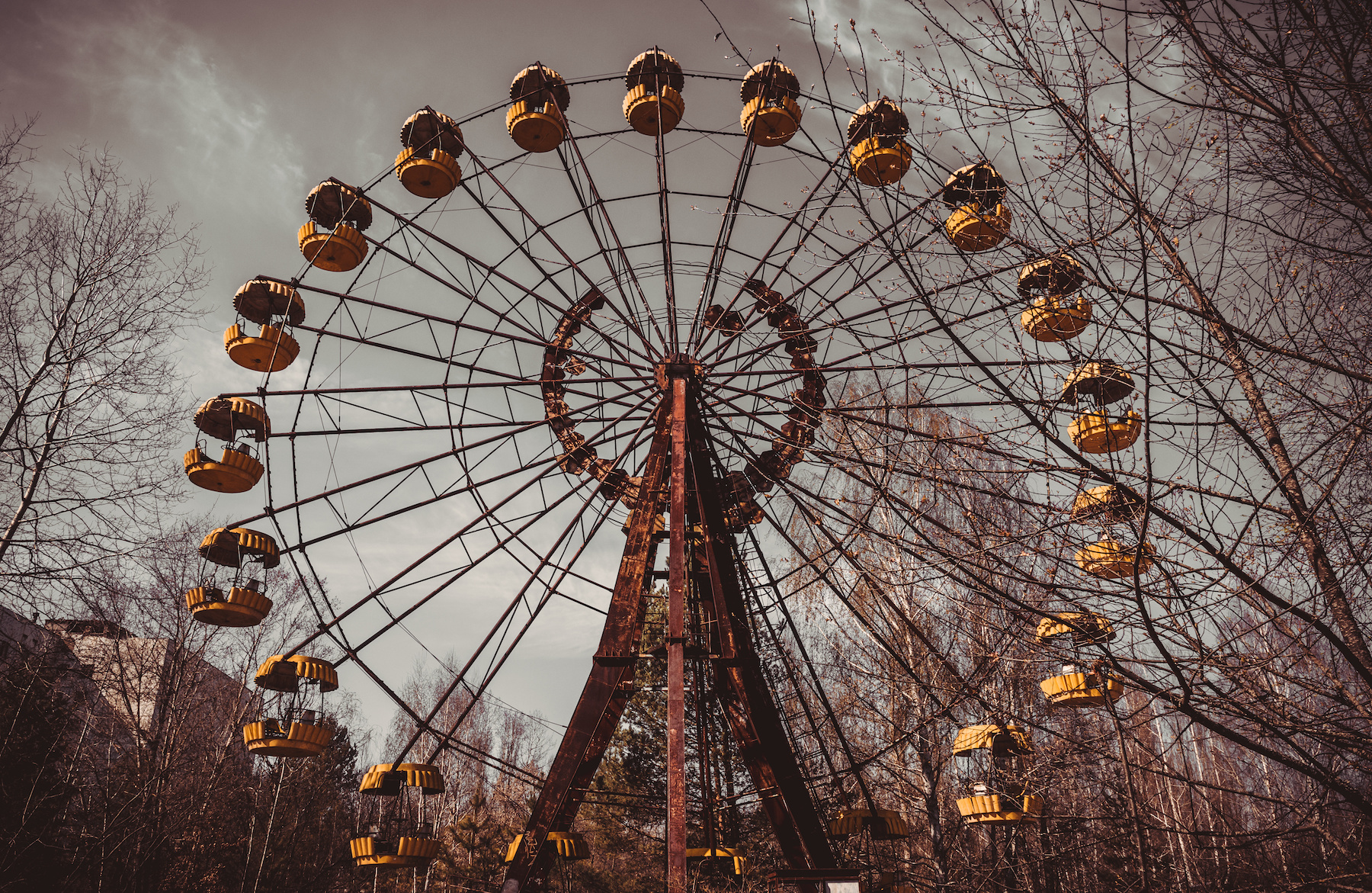A Diary of a Struggling Ecologist
Article By Ubai Husein
 This journey started with my love for food, which prompted me to pursue a degree in Culinary Arts. There, in addition to simply cooking, I was introduced to the various aspects about growing and producing food before it enters the kitchen, including the entire mechanism of factory farming and the resulting destruction caused to the environment. Fortunately, I was also introduced to the other end of the spectrum: Organic farming and SLOW foods (Sustainable, Local, Organic, Wholesome) and the whole stratosphere of environmental issues, campaigns and lifestyle changes that come with it. For what it was worth, it left enough an impact on me to continue exploring and delving deeper. I turned to advocacy campaigning and education, and started up a small not-for-profit, vehemently against industrialized agriculture, among other things.
This journey started with my love for food, which prompted me to pursue a degree in Culinary Arts. There, in addition to simply cooking, I was introduced to the various aspects about growing and producing food before it enters the kitchen, including the entire mechanism of factory farming and the resulting destruction caused to the environment. Fortunately, I was also introduced to the other end of the spectrum: Organic farming and SLOW foods (Sustainable, Local, Organic, Wholesome) and the whole stratosphere of environmental issues, campaigns and lifestyle changes that come with it. For what it was worth, it left enough an impact on me to continue exploring and delving deeper. I turned to advocacy campaigning and education, and started up a small not-for-profit, vehemently against industrialized agriculture, among other things.
Life took over in the next few years; in addition to running the NGO, I was training to take over the family business, and learning to be a husband and a father, when I came across New Acropolis, and was introduced to philosophical and meta-physical concepts of creation, evolution, and the need to discover a purpose in life.
After 4 years of struggling to make the NGO sustainable, my ecological pursuits, along with the NGO were shelved. At the time we justified it saying that society was not yet ready. I know now, however, that the fault lay elsewhere; deep down there was a selfish need for personal return on the effort, which the model could simply not sustain. The idea and the intention itself was beautiful, but a sincere spirit of volunteering was missing – the inspiration and fortitude that was required to pull through despite the lack of apparent gains to be made personally.
Fast forward 10 years. The need to find solutions to the problems that society faces today continues. At New Acropolis I have had several opportunities to volunteer. I started off with initiatives I felt a personal connection with; naturally I was drawn to ecological work. However, again I suffered from the tendency of losing interest after a while, when the going got tough. Upon reflection and guidance from other volunteers, it became clear that rather than a problem of external causes, there was a need to engage with the real problem of my own attitude towards the work. I realised that under the guise of philanthropy, I was actually simply drawn to externally exciting activities, on my own terms, and seeking attention and recognition. With this I set off to learn to overcome the drive of personal gain in my acts of service. And I learned that true volunteering can only really be referred to as such when someone works towards a greater cause without any hint of personal gain; simply because it is the right thing to do.
Though my philosophy study, I have come to appreciate, with a far deeper understanding, the connectedness of all life within a natural ecosystem – every component, from the minerals in the soil, to the plants, insects, animals and birds find a niche for themselves, while contributing to the a sustained balance of the whole. Life shows us clearly that no one species is lesser or more than another; each has a unique place, and a specific role to play. Only human beings seem to have forgotten their place and lost touch with the order and harmony of the intricate web of life. I’ve come to realize that we have an obligation to take our place and reclaim this harmony with nature.
Whether it is consciously or unconsciously, we do affect the environment around us. Everything that we consume has a lifecycle – it comes from somewhere and the waste goes somewhere. Not taking responsibility of this consciously perhaps, is an important contributing factor to the challenges faced by our planet. Being ecologically conscious of the impact of our consumption, taking responsibility for it, and ensuring that the damage being done is mitigated, is not a matter of choice really; rather it is an obligation. So today, when I engage in environmentally conscious or eco-friendly work, I have learnt to call it for what it is. I do not think that I am doing something extraordinary that needs accolades and recognition. It is simply the right thing to do, the most ethical choice in every situation.
Therefore, I choose to buy organic food from local growers when possible because it simply makes sense to eat healthy, without burdening the planet with any additional carbon footprint. I ride a bicycle, not only because it is an efficient non-polluting way of getting around locally, but also because it is a great way to keep in touch with what is happening around me, getting some exercise while at it. I segregate my waste at home on humanitarian grounds, more than on ecological principle; rag-pickers depend on picking through the garbage as a source of income. I compost my waste at home because it pains me to know that I too am responsible for contributing to a landfill spewing toxic emissions into the land and oceans. And I maintain a kitchen garden, not only for access to small pickings of fresh herbs, but also because it allows my kids to work with nature and better understand where their food comes from, fostering empathy towards the ones who grow it.
I do have my low days, where laziness kicks in and prevents me from doing something that I know is right, simply because it is inconvenient, boring or laborious. Every time I neglect to clean out a plastic bag, preferring to throw it in the bin, every time I see that my compost pit has been neglected, or that my bicycle has collected dust from disuse, I know that I am slipping, and allowing personal circumstances to get in the way of what I understand to be right. In such moments I recognize that I allowed the negligence, which resulted directly as a greater burden on the planet. But with only a bit of conscience, I see a mirror, and an opportunity for correction – to check myself, and apply my will to overcome the tendencies of the personality, to do what I am supposed to do; what I expect of myself.
It doesn’t really serve to judge others for their consumption patterns or their negligence of the environment. As I see it, each individual has to go through this process of understanding the real impact of their choices. The negative emotions that I would earlier harbour against others were not helping anyone; on the contrary, they were simply adding more separation, in an already torn world.
I understand today that practicing an eco-friendly lifestyle is not as much a matter of doing, as it is a matter of being. Being eco-friendly requires a realization of the fine balance in nature that is maintained by each and every organism, and specifically the realization and fulfilment of the role of the human being as its integral part. I believe that we need to remind ourselves of our place in the larger scheme of life, and if we find our place and our role, and dare to practice our purpose, this world will be a far better place tomorrow.
Image Credits: Image Courtesy New Acropolis India
The entity posting this article assumes the responsibility that images used in this article have the requisite permissionsImage References
Image Courtesy New Acropolis India
Permissions required for the publishing of this article have been obtained




What do you think?